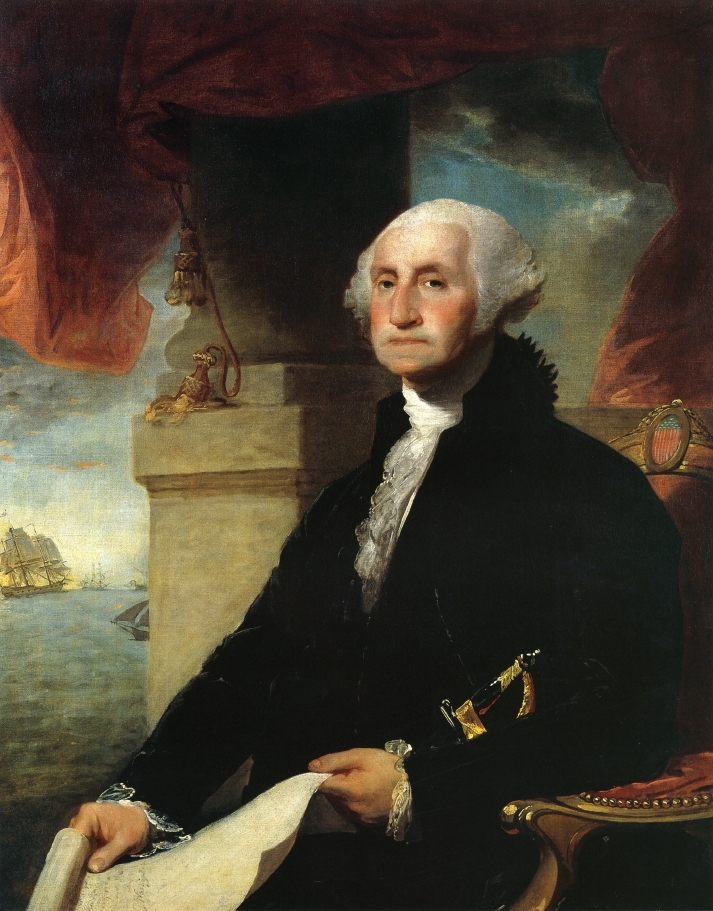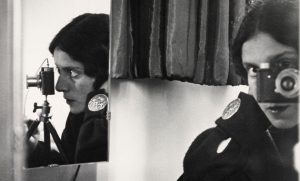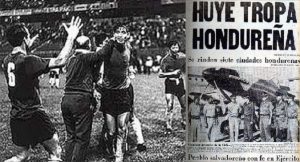“I feel my self going. I thank you for your attention. You had better not take any more trouble about me; but let me go off quietly; I cannot last long.”1 These were George Washington’s dying words. Who could have imagined that this great Revolutionary War hero and first President could fall two years after his retirement? He seemed to be immortal in the public’s eyes. Staying in the spotlight for nearly twenty five years, standing as the symbol of American nationhood, he not only had stood as a symbol of America, but he had also commanded the armies that helped gain national independence. After all the wars, he never appeared fazed, never showed any type of weakness or vulnerability, until that frigid winter of 1799.2
The century was nearly over, and the future of the young nation seemed bright. The former commander-in-chief of the nation had retired to his estate of Mount Vernon and had set out on horseback to check on certain areas of his plantation. It was December 12, 1799.3 He was exposed to cold rain and snow, but that did not stop this man from carrying out his responsibilities. However, sometimes carrying out responsibilities can have serious consequences. The next day he woke early in the morning, having difficulty breathing. Later in the morning he started to developed pain in the throat, and this led him to be unable to swallow or speak well. He grasped for some air, constantly tossing and turning to find a comfortable position.4 Lying down in agony, he was surrounded by three physicians who were all at a loss as to what to do.
James Craik, Gustavus Richard Brown, and Elisha Cullen Dick were the attending physicians for Washington, and all knew him very well.5 The first to arrive was Dr. Craik on Friday, December 13, when Washington started first experiencing a cold with a light hoarseness. By 2 a.m. the next morning, he awoke with troubled breathing. At 6 a.m. he was showing signs of a fever with throat pain and respiratory suffering.6 Washington was unable to swallow and even had difficulty speaking. Dr. Craik believed that the only option for Washington was for a bloodletting.
Bloodletting is the surgical removal of blood from a patient, and it was a typical procedure physicians used in the eighteenth century. Typically, the physicians were not the ones that would carry out the bloodletting; they would call in a skilled bloodletter. In this case, the bloodletter was George Rawlins. At 7:30 a.m., Rawlins removed about 12 to 14 ounces of Washington’s blood. Washington actually requested an additional bloodletting. Two hours later, Dr. Craik applied a blister of cantharides to Washington’s throat and removed roughly 18 more ounces of blood. This was also done at 11 a.m.7 Washington was still alert at this time. He even had the strength to stand up and walk to the bathroom, but he still had trouble swallowing tea, nearly suffocating from the attempt and unable to cough up the fluid.
There was an argument among the physicians caring for Washington, whether there should be a fourth bloodletting. Dr. Elisha Cullen Dick believed that more bloodletting would make Washington’s condition worse. Nevertheless, Dr. Craik ordered for the bloodletting at 3 p.m.8 After the fourth bloodletting, Washington seemed to show improvement; he was able to swallow. With renewed strength, Washington was able to revise his will. He knew his time was coming to an end. As the night continued, his condition steadily worsened. The physicians tried their best to keep him stable by applying blisters of cantharides to his arms, legs, and feet. They even applied wheat-bran cataplasms to his throat.9 This did stop his condition from worsening.

At 10 p.m., Washington whispered his burial instructions to his aide. Twenty minutes later, George Washington died. The news of his death spread rapidly across the country. The grieving was not only at his at burial site, but across the Atlantic. There was a London newspaper that eulogized: “His fame, bounded by no country, will be confined to no age.”10 Units of the British fleet that was blockading a harbor in France dropped their ensigns to half-mast. Napoleon ordered a ten-day requiem.11 In the United States, newspapers would publish poems from grieving women. People traveled to Mount Vernon to pay their respects. Citizens dressed in black clothing for months.12
December 26 was the official day of mourning. At dawn, there were sixteen cannons that were fired, and they continued to boom every half hour until 11 a.m. After the firing of the cannons, there was a march of troops to the Lutheran Church where Henry Lee gave a memorial of Washington that became immortal: “First in war, first in peace and first in the hearts of his countrymen, he was second to none in the humble endearing scenes of private life…The purity of his private character gave effulgence to his public virtues.”13 To pay tribute to the first president, Congress voted to construct a marble monument in the Capital building, which was still under construction in Washington, D.C. at the time. This was an appropriate tribute to a great man, and he will forever be immortal in our nation’s history.
- Salem Press Encyclopedia, January 2016, s.v. “George Washington’s Death.” ↵
- Salem Press Encyclopedia, January 2015, s.v. “George Washington,” by David Curtis Skaggs. ↵
- Salem Press Encyclopedia, January 2016, s.v. “George Washington’s Death.” ↵
- David M. Morens, “Death of a President,” New England Journal of Medicine, vol. 341, (December 1999): 1845. ↵
- David M. Morens, “Death of a President,” New England Journal of Medicine, vol. 341, (December 1999): 1845-1849. ↵
- David M. Morens, “Death of a President,” New England Journal of Medicine, vol. 341, (December 1999): 1845. ↵
- David M. Morens, “Death of a President,” New England Journal of Medicine, vol. 341, (December 1999): 1845. ↵
- David M. Morens, “Death of a President,” New England Journal of Medicine, vol. 341, (December 1999): 1845. ↵
- David M. Morens, “Death of a President,” New England Journal of Medicine, vol. 341, (December 1999): 1846. ↵
- Salem Press Encyclopedia, January 2016, s.v. “George Washington’s Death.” ↵
- Salem Press Encyclopedia, January 2016, s.v. “George Washington’s Death.” ↵
- David M. Morens, “Death of a President,” New England Journal of Medicine, vol. 341, (December 1999): 1846. ↵
- Salem Press Encyclopedia, January 2016, s.v. “George Washington’s Death.” ↵



73 comments
Ana Gonzalez
I enjoyed reading your introduction! I’m glad it was nominated for an award because it is always interesting to know what the last words of someone are, specially someone who means so much to the history and the foundation of the USA. I think the topic of your article was very interesting and I hope you win an award! Thank you for the article!
Nelson Smithwick
Using George Washington’s actual last words was an excellent way to introduce the article and had me completely hooked on the article. That was a ridiculous amount of blood that Washington had removed, it is kinda crazy to think that that was at one time considered a valid treatment for illnesses and diseases at the time. I also had no idea that other countries leaders paid their respects to the recently deceased president.
Zander Barrera
one of the more emotional articles I’ve read but it is clear that that was the point. our nation lost a hero that day, but I never knew that even the British who were enemies just years before with Washington paid respects, even so symbolic as lowering their flags to half. I also am shocked as to how quickly he became ill and succumbed to poor condition. How someone so influential and heroic could have such a painful end. Despite this I like how you highlighted his immortality, it’s true that he will always be the first president but that he will never be forgotten, he nor his actions empower the American idea that this country, young as it may be is here to stay. excellent work in showing us his final moments, as sad as it is you did him justice in this article.
Alyssa Vela
This was such an amazing article! I realized I hadn’t previously commented on it, and considering you were nominated for “Best Introduction” i needed to find out what the hype was about. You did not disappoint! You were able to catch my attention, and make me feel. I loved that you were able to bring to light the fact that people often see politicians as immortal, all the while subtly reminding the reader that he is in fact as mundane as anyone else. I really enjoyed reading this article! Congrats on your nomination!
Briana Bustamante
Interesting article, I really enjoyed reading it again. I still find it interesting as to how George Washington died, and how his death made an impact not only in the United States, but also around the world. Your introduction was captivating and informative. Over all you told a great story and I can see why your article was nominates as best introduction. Great work!
Aimee Trevino
Again, I really enjoyed your article! George Washington’s success are always discussed, so it is interesting to read of his final dying days. I really liked the use of your quote to begin your article as it really helped to captivate my attention, and keep me wanting to read more! Your introduction followed smoothly with the quote, and your article was really well written.
Lianna Ybarra
My favorite part of this article is how you opened it up with George Washington’s last words. It grabs the readers attention and makes them want to read more. Washington was a strong leader who kept doing his responsibilities even when it was his final days. When I read this and found out about how he died, I was surprised because I had never really known how he died. I think that people tend to focus more on his life and what he did, but I feel like people should also know how he died and those last words.
Aaron Jaramillo
What a great and impactful article. George Washington is known among all Americans and is admired as well. I loved that you opened with a quote. It hooked me as well as the rest of your introductory paragraph. Growing up learning about Washington over the years I never learned the cause of his death. Your article filled in that gap I was missing. Good job.
Mario Sosa
I have heard of the many things that George Washington did in his lifetime. By having several close calls at getting shot at and being able to beat the British, he seemed invincible. I remember hearing how he single-handedly stopped a planned military coup by just talking to the soldiers and even declined their offer to be their king. Very detailed, fantastic job on the article!
Alexis Soto
Great article on such an over looked moment in American history. The legacy of George Washington is known to all Americans. He was not only our first President, but also a symbol of American ideals. He gave up power willingly and accordingly to the ideals of democracy. He served only to terms, setting up a precedent for future leaderate to follow. I am glad to have read this article covering his death as I feel it should be something we all should know. Awesome read!